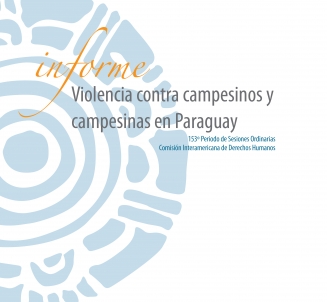






The access and possession of land make up one of the main generators of tensions and social conflicts in Paraguay. The concentration of land, the increase of soybean as a main crop in the country, the excessive use of pesticides, the high rate of informality of land possession and the lack of substantial progress in the implementation of the constitutionally established agrarian reform, are some of the factors that contribute to the persistence of these conflicts and the generation of violence against rural communities.
The pattern of violence suffered by the rural communities has different expressions and involves serious violations of human rights in many cases. At times, the State uses excessive force by repressing the social protest that country people carry out to demand compliance with environmental laws, which establish legal minimums and restrictions on the use of pesticides. The State also incurs in serious irregularities and violates international guidelines by carrying out violent evictions in which country people are removed from the lands they occupy and which generate multiple human rights violations. On other occasions, the State reinforces the pattern of violence by tolerating and omitting to implement effective measures against the excessive use of force by private agents. The different expressions of this violence sometimes have negative implications to the right to life, the right to personal integrity and also, to the access to justice, furthermore, the State fails to diligently investigate the events as well as to punish the responsible people.
In this scenario, this report aims to make visible and send the violence complaints from local rural communities.
Help us continue this critical and urgent work with a donation!
DONATE NOW